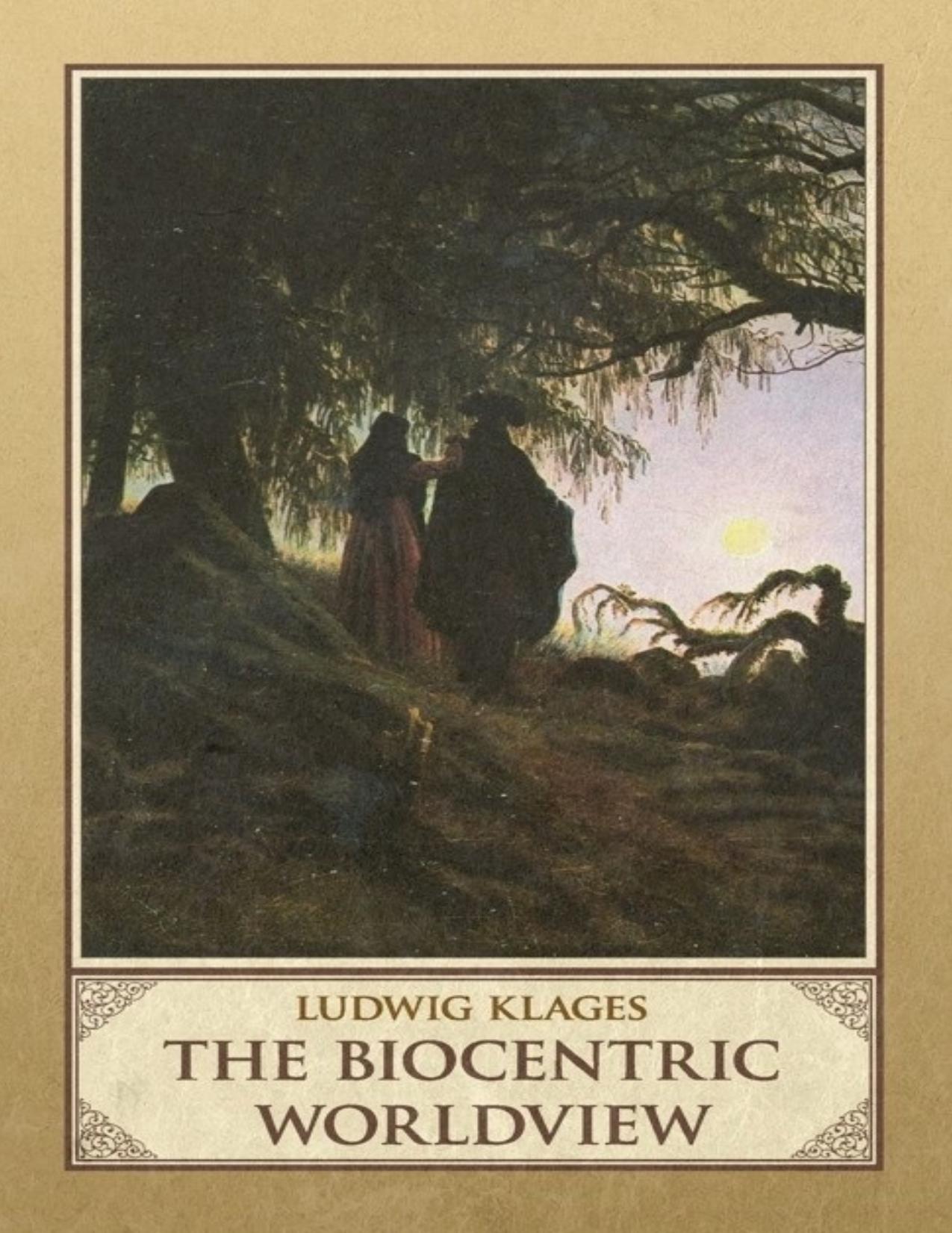The Biocentric Worldview by Ludwig Klages & Joseph D. Pryce

Author:Ludwig Klages & Joseph D. Pryce
Language: eng
Format: azw3, epub, pdf
Tags: Philosophy, Metaphysics, lit_guide
ISBN: 9781907166617
Publisher: Arktos
Published: 2013-03-05T00:00:00+00:00
However, we feel that the time has come to remember that the course upon which modern psychology as a whole has entered never leads beyond a somewhat restricted range of questions; that it is possible to treat its subject by other methods; and that it runs the risk of exposing itself dangerously if it persists in raising those foolish objections to a loftier conception of psychology, the commonest of which will be disposed of now.
Under the influence of the curious belief that its favorite concepts — that sensations, imaginations, feelings, and the like are the psychically simple data — the atoms, so to speak, of which the mind is properly composed — psychology believes that it ought to reject as premature and unscientific any dealings with questions of characterology. We do not now ask whether it was ever seriously hoped to solve the problem that lies, for example, under the name of Napoleon, by analysis of processes of thought and of the commonest estimations of value. The objection in any case is invalid. For nothing is less immediately “given” to observation than the fact, simple enough in the meaning of modern psychology, of the perception of red. A red ball a yard distant from my eyes appears very different to a child and to an old man; to myself when rested and when tired; to instantaneous and to protracted observation; to a hungry and a full man, or to a merry and a sad one; it appears different under changing illumination, and if placed before a white, green, or red background; quite apart from the fact that unconscious — if not conscious — comparison is required in order that the same or even a similar redness shall be recognized in a raspberry, the evening sky, red wine, blood, a brick, a tiger lily, and a coral. Redness, and even a redness more closely determined, is a structure of thought; it is extracted through the elaboration of contents of perception, but it is not itself a content of perception; and whatever we might succeed in establishing with regard to the perception of red, it would never furnish us with a brick with which to build personality.
But even if it were a conceivable task to translate personality into the language of such universal concepts as must be developed in order to elucidate the processes of perception, this would still demand the closest acquaintance with personality. Once we possess this, we may perhaps be able to derive peculiarities of personal color perception, and to test experimentally the correctness of our conclusions; otherwise we look for them in vain from any theory of color perception, however perfect. The case is similar to that of cytology, for it is certain that most of the processes with which that science deals belong to categories which are proper partly to physics and partly to chemistry, but which are much more complicated, from the standpoint of those sciences, than any chemical processes known to us. Here, too,
Download
The Biocentric Worldview by Ludwig Klages & Joseph D. Pryce.epub
The Biocentric Worldview by Ludwig Klages & Joseph D. Pryce.pdf
This site does not store any files on its server. We only index and link to content provided by other sites. Please contact the content providers to delete copyright contents if any and email us, we'll remove relevant links or contents immediately.
The remains of the day by Kazuo Ishiguro(8999)
Tools of Titans by Timothy Ferriss(8396)
Giovanni's Room by James Baldwin(7346)
The Black Swan by Nassim Nicholas Taleb(7129)
Inner Engineering: A Yogi's Guide to Joy by Sadhguru(6796)
The Way of Zen by Alan W. Watts(6614)
The Power of Now: A Guide to Spiritual Enlightenment by Eckhart Tolle(5782)
Asking the Right Questions: A Guide to Critical Thinking by M. Neil Browne & Stuart M. Keeley(5775)
The Six Wives Of Henry VIII (WOMEN IN HISTORY) by Fraser Antonia(5515)
Astrophysics for People in a Hurry by Neil DeGrasse Tyson(5190)
Housekeeping by Marilynne Robinson(4448)
12 Rules for Life by Jordan B. Peterson(4305)
Ikigai by Héctor García & Francesc Miralles(4274)
Double Down (Diary of a Wimpy Kid Book 11) by Jeff Kinney(4272)
The Ethical Slut by Janet W. Hardy(4253)
Skin in the Game by Nassim Nicholas Taleb(4250)
The Art of Happiness by The Dalai Lama(4130)
Skin in the Game: Hidden Asymmetries in Daily Life by Nassim Nicholas Taleb(4007)
Walking by Henry David Thoreau(3962)
